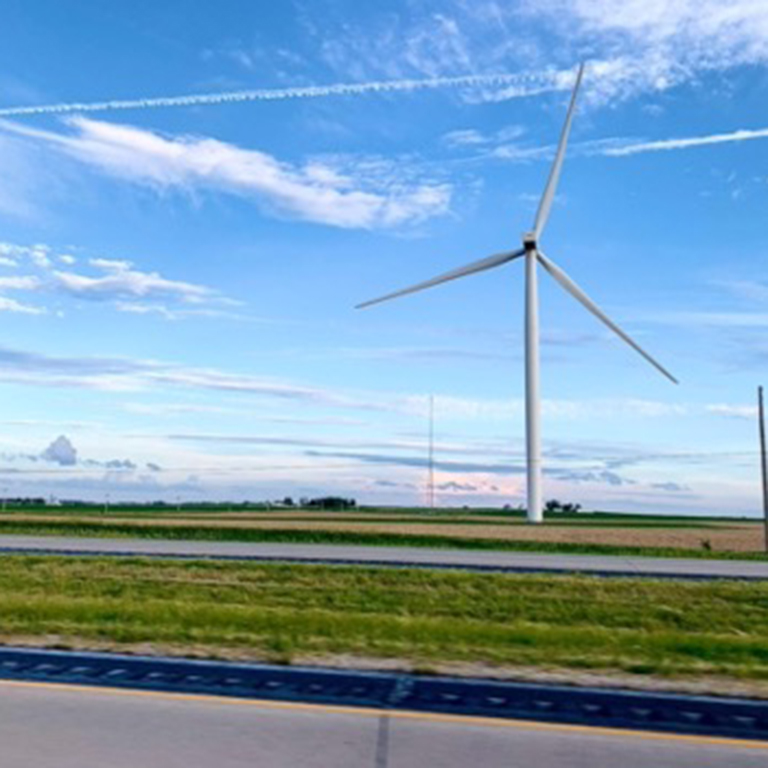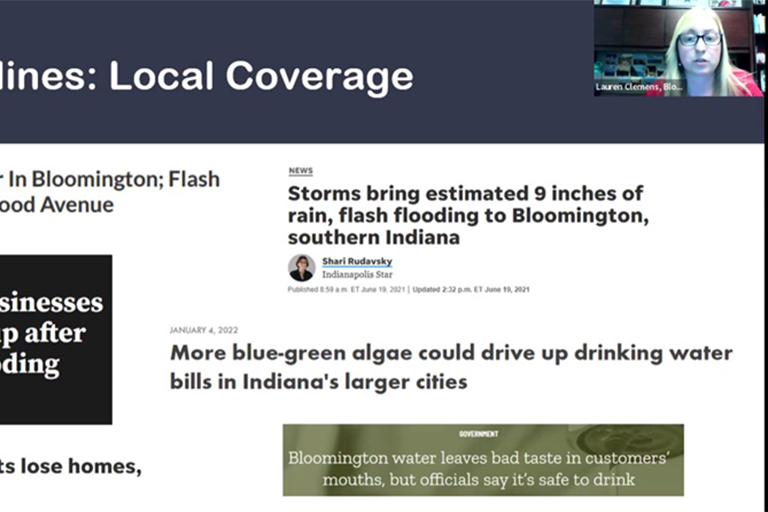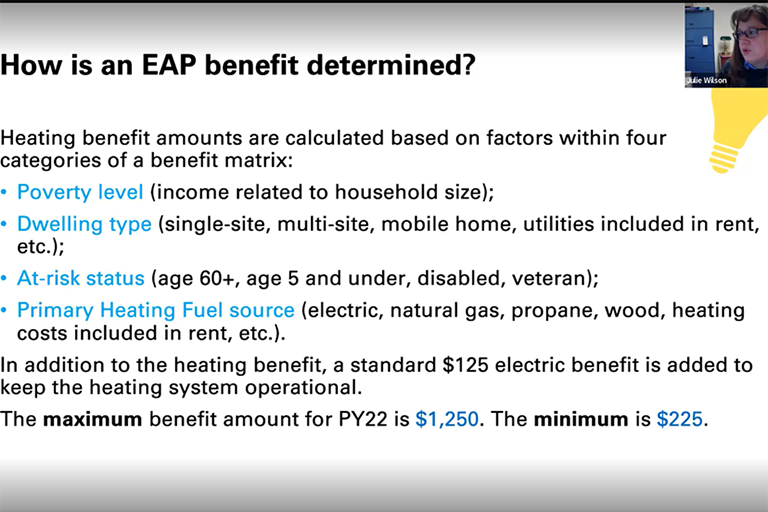A group of eight Indiana local governments gathered virtually on Feb. 11 to share successful projects and brainstorm strategies to build more resilient communities across the Hoosier state. The meeting was the first of an eight part series hosted by the Environmental Resilience Institute for local governments who have completed the Hoosier Resilience Index Readiness Assessment, a tool to help cities, towns, and counties gauge their preparedness for the impacts of climate change.
The Hoosier Resilience Index Community of Practice Pilot Program was started to provide an opportunity for these local governments to share their work and showcase positive experiences to jurisdictions facing similar challenges in the state. The series is based on each of the eight worksheets within the Hoosier Resilience Index Readiness Assessment, which categorize the most relevant and actionable impacts of climate change to communities across the state.
The first session, which focused on the energy and public utilities HRI worksheet, will be followed by sessions on the built environment, economic development, emergency management, natural resources, food and agriculture, planning and land use, and public health and safety. The Feb. 11 session featured work from the City of Bloomington on solar energy development and opportunities for communities to invest in renewables.
Like many communities across the state in recent years, Bloomington has been forced to deal with damages from extreme weather, which is occurring more frequently due to climate change.
“Due to climate change, we have seen more flash flooding, more power outages, more damage to infrastructure and an increase in energy costs locally,” said Lauren Clemens, assistant director of sustainability within Bloomington's department of economic and sustainable development. “Last June, we saw substantial flooding on one of our main downtown streets and one of our fire stations was severely damaged by the floodwaters. The station remains closed and the damages totaled more than $1 million.”
As the communities reviewed the impacts of climate change on the energy sector and on public utilities, challenges associated with ensuring a reliable power supply stood front and center. With more frequent extreme weather events expected as a result of climate change, the development of renewable energy systems can help communities diversify their power grid and increase resilience.
Also discussed were considerations of the warming climate’s impacts on drinking water quality and distribution infrastructure as well as increased stress on wastewater treatment systems. These impacts include increased concerns about the availability and quality of drinking water in communities around the state.
“The impact climate change has on energy systems and public utilities across Indiana are widespread, and they are happening right now,” said ERI Implementation Manager Matt Flaherty. “With this new program, we are excited to empower these communities to have meaningful dialogue on these challenges and work together to find ways to overcome them together.”
In order to understand the role of partnerships and innovation in addressing these complex challenges, the Community of Practice Pilot Program also features a subject-matter expert during each session.
Julie Wilson, energy assistance program coordinator for the South Central Community Action Program in Bloomington, Ind., informed the local governments of assistance programs aimed at helping vulnerable and low-income residents with their energy bills—a key concern as climate change impacts become more pronounced.
“The state of Indiana has recently put into place a policy to help low-income Hoosiers with emergency services as they recover from more extreme weather in addition to the existing Energy Assistance Program,” Wilson said. “This provides additional funding to be used for running fans, responding to flooding, or, as we have in the past, responding to the polar vortex temperatures to support our clients.”
Local governments looking to assess their preparedness for the impacts of climate change can also complete the Hoosier Resilience Index Readiness Assessment by submitting this simple request. The tool, which jurisdictions will be guided through by ERI, is free and open to all Hoosier local governments.
About the Environmental Resilience Institute
Indiana University’s Environmental Resilience Institute brings together a broad coalition of government, business, nonprofit, and community leaders to help Indiana and the Midwest better prepare for the challenges of environmental change. By integrating research, education, and community, ERI is working to create a more sustainable, equitable, and prosperous future. Learn more at eri.iu.edu.





